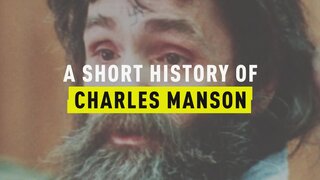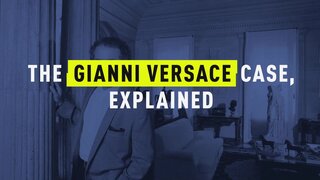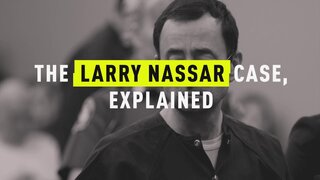Create a free profile to get unlimited access to exclusive videos, breaking news, sweepstakes, and more!
Who Is Asia McClain And What Does She Say About The Last Time She Saw Adnan Syed?
A chance meeting at a library would ultimately change Asia McClain’s life, making her a part of one of the most polarizing cases of our time.
Asia McClain was a typical student at Woodlawn High School in Baltimore, Maryland on January 13, 1999. She would later recall seeing a classmate, Adnan Syed, in the library that afternoon, and chatting briefly with him about his recent breakup. It was an insignificant moment in time, but it would later become one of the key points of evidence being used to establish either the guilt or innocence of a man serving a life sentence in prison for the murder of his ex-girlfriend.
HBO’s documentary series, “The Case Against Adnan Syed,” takes another look at a complex case that captured national attention in 2014 as the subject of true crime podcast “Serial." Syed, now an adult who’s spent nearly 20 years behind bars, was arrested in connection to the crime on February 28, 1999, nearly three weeks after a passerby discovered Hae Min Lee's body on February 9. Syed was convicted of murder in the first degree, robbery, and kidnapping the following year but, as “Serial” shed a light on, there were many aspects of the case that raised questions with no easy answers.
One such issue is the story of Asia McClain, who said back then that she’d seen Syed at the library on the day prosecutors claimed that he murdered his former high school sweetheart, Lee. Despite McClain sharing this information with Syed, his family, and his attorney at the time, Cristina Gutierrez, McClain was never called to testify during the trial, a fact that Syed’s supporters have referred to as one of the many mistakes made during Syed’s trial that led to his ultimate conviction.
McClain recounted that fateful day — January 13, 1999 — during the second episode of HBO’s new series. It wasn’t until the case against Syed had really begun to take off that McClain even realized the significance of the last time she saw him, she explained.
“Adnan and I weren’t really close friends but we had a ton of mutual friends and so when someone gets arrested you start to think of, you know, what’s the last time that I saw this person? And then you start to think of when’s the last conversation that I had with them? And it popped into my head, like, ‘Oh wait, oh I remember that day, I saw him in the library,’” she said.
Even more strangely, McClain recalled that the topic of conversation was Lee, Syed’s ex-girlfriend who would soon be declared missing and later found dead, buried in a shallow grave.
“We actually talked about Hae. I told him that I heard that they had broken up. He told me that it was true. He said that she had started a new relationship with another guy. He referred to him as, um, ‘a white dude,’ is what he said,” she recalled, likely referring to Don Clinedinst, an older co-worker that Lee entered into a relationship with either during or after her relationship with Syed.
McClain recalled that she “felt bad for prying” that day, but said that Syed “shrugged it off,” telling her, “I just want her to be happy.”
Later, she realized how significant their conversation really was.
“I do remember looking at a day planner that I had and it just slowly kind of creeped up on me that the last time I saw this guy was at the library. That was before we had the two-days off of school and that was when they’re saying she went missing, and then it was just kinda like, light bulb moment. I might have been the last person to see him and we talked about her,” she said.
From there, McClain began taking action. At the urging of her ex-boyfriend, she decided to let Syed’s family know about their brief meeting, but when she went to his house and told them, she felt that they did not see any “great importance in it because it was only a 15 to 20-minute period of time,” she said.
Undeterred, McClain then wrote a letter to Syed letting him know about her sudden realization in case his family didn’t, she explained. She also declined to go to the police at the time because, at the time, she did not trust them, she said.
McClain read a portion of the letter she sent to Syed during the HBO special. It read, “I’m not sure if you remember talking to me in the library on January 13, but I remember chatting with you. Depending on the amount of time you spent in the library that afternoon, it might help your defense. I’m trying to reach out to your lawyer to schedule a possible meeting between the three of us. … I want you to look into my eyes and tell me if you’re innocent.”
An unspectacular moment of small talk between two acquaintances would later become a hugely significant detail in Syed’s case. Because no one connected to the case at the time followed up with McClain, she was not called to testify, and would not testify until a hearing in February 2016, during which a judge would decide if the absence of McClain’s testimony during the 2000 trial was sufficient proof that Syed had had ineffective counsel during his initial trial and was, thus, entitled to a new one, according to The Washington Post.
A judge vacated Syed’s conviction in June 2016 and granted him a new trial, citing Syed’s attorney’s decision not to question damning cell tower evidence used against Syed during his original trial, The Baltimore Sun reports. Syed’s legal team requested that he be released on bail that October, but a judge denied the request a few months later, in December, according to National Public Radio's report.
The state of Maryland appealed the 2016 decision to grant Syed a new trial, but the special appeals court upheld the judge’s original decision, the Associated Press reports. The state has appealed that decision as well, according to the outlet.
An appeals panel made up of several judges began reviewing the case in November, and the Maryland Court of Appeals ruled on Friday against awarding Syed a new trial, instead reinstating his conviction in a 4-3 decision, NBC News reports.
Syed's lawyer Justin Brown called the decision devastating in a statement issued shortly after the verdict was released, but added, "we will not give up on Adnan Syed."
McClain is one of many who were upset by the news and who took to social media to voice their frustrations. In a heartfelt Periscope video reacting to the ruling, McClain called the court’s decision “such bs.”
“It would be one thing, you know, if I had testified, and they didn’t think that my alibi was credible or if there was some kind of hitch with me,” she said, breaking down into tears. “But to say that you think that I’m credible and you know acknowledge the fact that it wasn’t done by the book and that she was wrong for not contacting me but then to say that you don’t think that it would make any difference makes no sense. It makes no sense to me."
She later posted a photo of herself holding a bag emblazoned with the hashtag, “#WhatAboutAdnan.”
“How many more years of this?! They are toying with peoples lives!” she wrote in one tweet, before resolving to “keep saying that I know.”

























